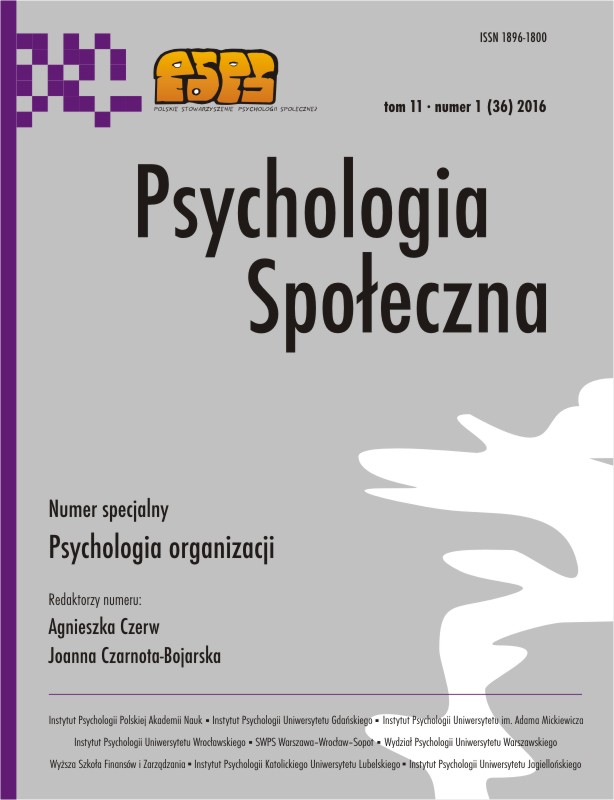Etyka pracy, przywiązanie organizacyjne a gotowość do podejmowania nieetycznych zachowań proorganizacyjnych - raport z badań
WORK ETHIC, ORGANIZATIONAL COMMITMENT AND WILLINGNESS TO UNDERTAKE UNETHICAL PRO-ORGANIZATIONAL BEHAVIOR - RESEARCH REPORT
Author(s): Małgorzata Chrupała-Pniak, Damian GrabowskiSubject(s): Social Sciences, Psychology
Published by: Wydawnictwo Naukowe Scholar Sp. z o.o.
Keywords: work ethic; organizational commitment; three-components model of organizational commitment; unethical pro-organizational behavior
Summary/Abstract: The study (Polish sample, N = 321) sought to investigate the relationship between work ethic, organizational commitment and unethical pro-organizational behaviors. Conceptualization of the work ethic has been done in line with the concept of the work ethic by Max Weber. Work ethic consists of the following attitudes and dispositions (Miller et al., 2002): (1) centrality of work; (2) hard work; (3) aversion to time waste; (4) anti-leisure; (5) delay of gratification; (6) self-reliance, and (7) willingness to act honestly at work (morality/ethics). Organizational commitment has been defined according to the three-components model of Meyer, Allen (1991) and treated as a syndrome of three mental states, i.e. an affective commitment, a normative commitment and a continuance commitment. Unethical pro-organizational behaviors (UPB) are unethical behaviors conducted by employees in order to potentially benefit the organization (see: Umphress et al., 2010). The study confirmed that work ethic correlates moderately and poorly with organizational commitment.Predictors of organizational commitment were: hard work, centrality of work, delay of gratification and low level of self-reliance. The study showed that willingness to act honestly at work (morality/ethics) and disapprove of leisure time (anti-leisure) decreased the unethical pro-organizational behaviors. On the other hand, normative commitment and the value of hard work increased the unethical pro-organizational behavior.
Journal: Psychologia Społeczna
- Issue Year: XI/2016
- Issue No: 36
- Page Range: 69-83
- Page Count: 15
- Language: Polish

